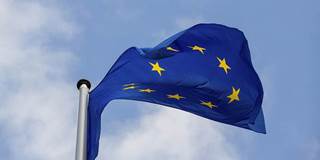The likely success of anti-EU protest parties in the upcoming European Parliament election reveals the depth of Europe's political crisis. To overcome it, Europe's political establishment needs to create a new political vision that combines French and German ideas and concerns.
PRINCETON – Many Europeans tremble at the likely outcome of the upcoming European Parliament election: a strong showing for anti-European protest parties, which will almost certainly try to present themselves as the real winners. But hand-wringing will not resolve the European Union’s political crisis.
And the crisis runs deep. Nowadays, anti-EU parties – Marine Le Pen’s National Front in France, Geert Wilders’ Party for Freedom in the Netherlands, and Nigel Farage’s United Kingdom Independence Party – have been the most effective at organizing themselves into a single political “family.” Meanwhile, the established families – social democrats, liberals, and the European People’s Party (EPP) bloc – have been discredited in many Europeans’ eyes.
The problem is that the old European parties’ intellectual and moral foundations have rapidly eroded in recent years, owing partly to their failure – or inability – to adapt to EU-level systems. If they do not act fast to re-establish themselves as credible and effective representatives of voters’ interests, they risk fading into the political background, allowing irresponsible populists gradually to take center stage.

PRINCETON – Many Europeans tremble at the likely outcome of the upcoming European Parliament election: a strong showing for anti-European protest parties, which will almost certainly try to present themselves as the real winners. But hand-wringing will not resolve the European Union’s political crisis.
And the crisis runs deep. Nowadays, anti-EU parties – Marine Le Pen’s National Front in France, Geert Wilders’ Party for Freedom in the Netherlands, and Nigel Farage’s United Kingdom Independence Party – have been the most effective at organizing themselves into a single political “family.” Meanwhile, the established families – social democrats, liberals, and the European People’s Party (EPP) bloc – have been discredited in many Europeans’ eyes.
The problem is that the old European parties’ intellectual and moral foundations have rapidly eroded in recent years, owing partly to their failure – or inability – to adapt to EU-level systems. If they do not act fast to re-establish themselves as credible and effective representatives of voters’ interests, they risk fading into the political background, allowing irresponsible populists gradually to take center stage.